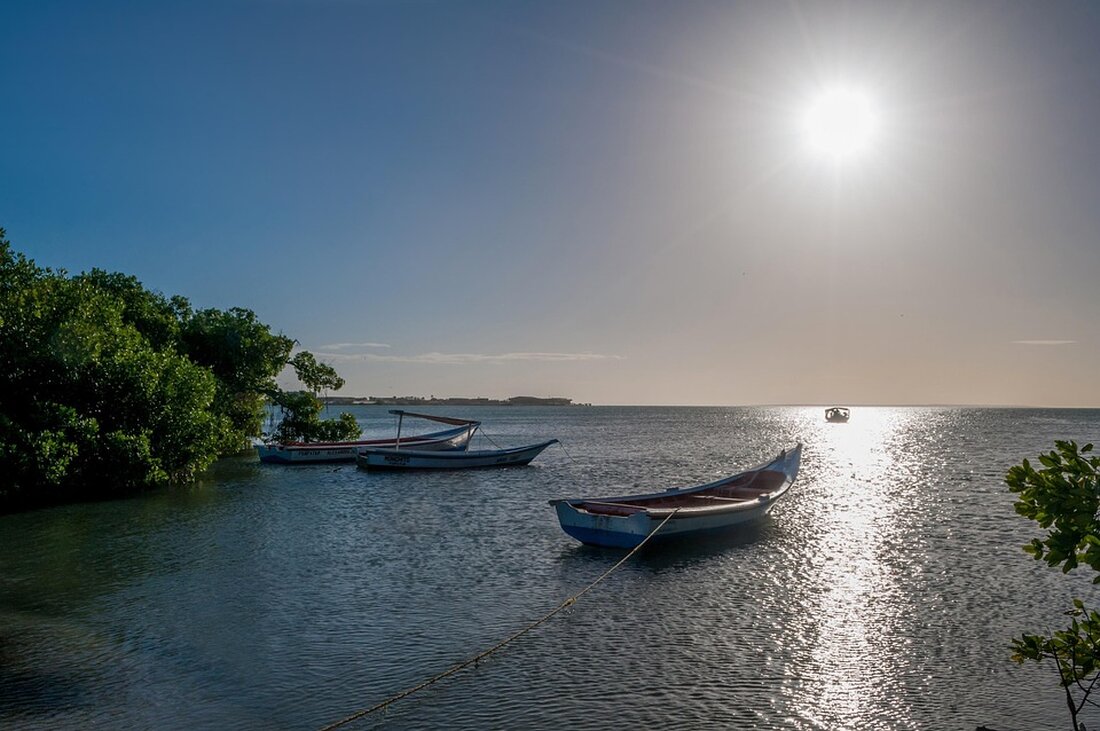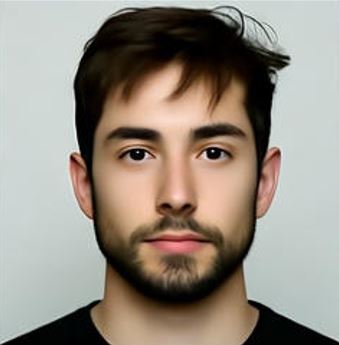From Venezuela to the USA: dream career in cosmetics, then deportation
Andry José Hernández Romero, a Venezuelan makeup artist fleeing persecution, was deported to the United States and is now in a Salvadoran prison. A dramatic fate.

From Venezuela to the USA: dream career in cosmetics, then deportation
A year ago Andry José Hernández left Romero Venezuela to seek a better future in the United States. His goal was to further expand his career as a makeup artist. He left his life behind in the small town of Capacho Nuevo, where he lived with his mother, father and younger brother.
On May 23, 2024, just two days after his 31st birthday, Andry set out with the hopes of one day opening a beauty salon in the United States or making a living from one of his other passions: design and tailoring. But all that hope turned into fear and worry.
Tragic turn on his journey
The Venezuelan makeup artist reached the United States, but his journey took a "tragic" turn, his mother Alexis Romero told CNN. Andry was among the hundreds of Venezuelan migrants deported to El Salvador by the U.S. government in March. His relatives have not received any news from him since then; communication has completely broken down.
There is currently no certainty as to what will happen to him or the other detainees Terrorism Prison (Cecot) will happen. "Please bring him back, it's been two months of fear. We can't take it anymore. Please, put your hand on your heart and send him back. This fear is eating us alive... I hope they say, 'Yes, he's coming back.' That they say anything, even a little thing," pleads Alexis, 65.
Who is Andry Jose Hernandez Romero?
Andry Hernández Romero turned 32 on Wednesday. He comes from Capacho Nuevo, a town in the Venezuelan border state of Táchira that, according to official estimates, has fewer than 30,000 inhabitants. His passion is design, makeup, costume making and acting. These artistic skills have helped him become well known in his hometown, where he plays an integral role in a local festival.
Since he was 7 years old, Hernández has participated as an actor in the “Reyes Magos de Capacho” festival, which celebrated its 108th anniversary a few months ago and is a central cultural event in Táchira and throughout Venezuela.
"We're from a small town, but we all know each other," Reina Cárdenas, 36, a childhood friend of Hernández, told CNN. "We became very good friends from a young age. He loved doing my makeup and preparing me for the show. We had a lot of common interests. Besides the Reyes Magos festival, we went out to eat together, we were confidants, and we have a very nice friendship."
His way to America
In his youth and adult life, Hernández continued acting in the festival and began making costumes and applying makeup for the performers. He studied industrial engineering until the fifth semester at the private university Santiago Mariño Polytechnic in San Cristóbal. As tuition fees increased each month, he “got the urge to work,” and he decided to drop out to focus on his career, his mother explains.
Until then, he had lived his entire life in Capacho, except for a few trips to Bogotá, Colombia, and Caracas for professional reasons. Then came his trip to the United States to seek asylum and pursue professional development - a trip from which he has not yet returned.
A nightmarish trip to the USA
Andry Hernández Romero arrived in the United States on August 29, 2024, specifically at the San Ysidro border crossing with the Mexican border, after leaving Venezuela a year earlier, report Alexis Romero and Reina Cárdenas. “He showed up for his CBP One appointment on August 29th and from that moment on he was held in a refugee center in the United States,” says Cárdenas.
The CBP One app, which was crucial for hundreds of thousands of migrants to make appointments at border crossings, was shut down in January by the Trump administration, which also canceled previously scheduled appointments. Reina says Andry was associated with the Tren de Aragua from the moment he arrived - still during the Biden administration - because he is tattooed: a crown on each wrist and a snake on his forearm. His case is not the only one in which US authorities have linked these tattoos to the Venezuelan criminal gang.
The injustice of deportation
“When that happened, we started submitting all the evidence they asked for to prove otherwise and for Andry to continue his asylum application,” his childhood friend adds. “They had nothing against him, no evidence,” says Reina Cárdenas. "We submitted everything they asked for the investigation at that time, because from the moment he entered the country they linked him to the Tren de Aragua, and that was just because of the tattoos. There was no other reason, they never presented any evidence, just the tattoos."
Anry's asylum process seemed to be going well up until the end, based on conversations with him during his detention and with his legal defense. “His asylum process was positive, as far as we could see,” says Reina. “He passed it Credibility test. Everything went very well. There were moments when he wanted to be deported because of the time he was detained, and the lawyers and the judge handling his asylum application told him that his case was going well and that he should be patient, that he would be accepted at any time.”
Deportation under the Alien Enemies Act
While Hernández's immigration case was still pending, Trump's second term began, accompanied by a major campaign against illegal immigration. Last March, after more than half a year in detention since his arrival in San Ysidro, the young man was deported to El Salvador. Andry Hernández is one of hundreds of migrants deported in mid-March to Cecot, the mega-prison built by El Salvador to detain "the worst of the worst," according to the country's president, Nayib Bukele, under the Alien Enemies Act, a war-activated policy used by the Trump administration to expel alleged members of the Tren de Aragua.
The US government acted quickly to put hundreds of migrants, including Venezuelans, on flights to El Salvador, where they remain to this day, completely inaccessible. The 32-year-old Venezuelan migrant is part of a class-action lawsuit against the Trump administration. The lawsuit argues that invoking the Alien Enemies Act is illegal and violates the affected migrants' constitutional due process rights.
Tattoos with a different meaning
This Venezuelan's family says the tattoos that led to him being labeled a member of the Tren de Aragua have nothing to do with a gang, but rather reference the traditional Reyes Magos festival in his city. The crowns on his wrists are linked to the Reyes Magos and are inscribed with the names of his mother and father, while the snake on his forearm refers to one of his roles in the festival, explains Reina Cárdenas.
CNN asked the US Department of Homeland Security (DHS) questions about Andry's case and was told that the department's assessments go far beyond tattoos and social media, without going into further detail. “DHS’s assessments go far beyond just gang member tattoos and social media,” a senior DHS spokesperson said in a statement. "The Tren de Aragua is one of the most violent and ruthless terrorist gangs on earth. They rape, maim and murder for fun. President Trump and Secretary (of Homeland Security) Kristi Noem will not allow criminal gangs to terrorize American citizens. We trust the judgment of our law enforcement authorities."
Asylum procedures and support
His friend and mother say the young man decided to seek asylum in the United States because of the problems he had as a makeup artist for a Venezuelan pro-government television station. They report that he was harassed and had political difficulties because of his open homosexuality. In a statement that is part of the evidence in the class action lawsuit against the Trump administration, Alexis explained that her son "was persecuted because of his sexual orientation and his refusal to promote government propaganda" while he worked as a makeup artist at the Caracas television station.
Venezuelan President Nicolás Maduro has previously spoken about the arrest of Venezuelans in El Salvador, describing the situation as a kidnapping. He has promised to rescue the 253 Venezuelans held in El Salvador. “I swear to you that we will save the 253 Venezuelans kidnapped in El Salvador,” Maduro said during an event when the first video of the detainees in CECOT was released.
In March, El Salvador agreed with the United States to accept up to 300 migrants sent by the Trump administration to be held in Cecot following the activation of the Alien Enemies Act. This agreement stipulates that El Salvador will receive approximately $6 million from the United States to house the detainees in this prison. El Salvador's president, Nayib Bukele, proposed to Maduro the exchange of people deported to El Salvador for what he considers "political prisoners" of the Venezuelan government.
Meanwhile, pressure continues in the United States to release Hernández and all other detainees at Cecot. Margaret Cargioli, an attorney with the Immigrant Defenders Law Center and legal advisor to Andry Hernández, said in early May that "legal processes are important" and they will not stop until everyone is brought back to the United States. “One of the worst forms of torture carried out in Cecot is the isolation of people from their relatives: no visits, no contact, no communication,” Cargioli said at a joint event of advocacy groups and politicians.
Brad Hoylman-Sigal, Democratic State Senator from New York, commented that what Andry and the other detainees are going through goes against American values. "It is un-American to deport residents of this country without any procedure and, moreover, to subject them to the conditions of a foreign prison with no supervision or security guarantees. This is exactly what happened to Andry Hernández Romero and hundreds of others who were sent to the notoriously dangerous Cecot prison in El Salvador," Hoylman-Sigal said at the event.

 Suche
Suche
 Mein Konto
Mein Konto
